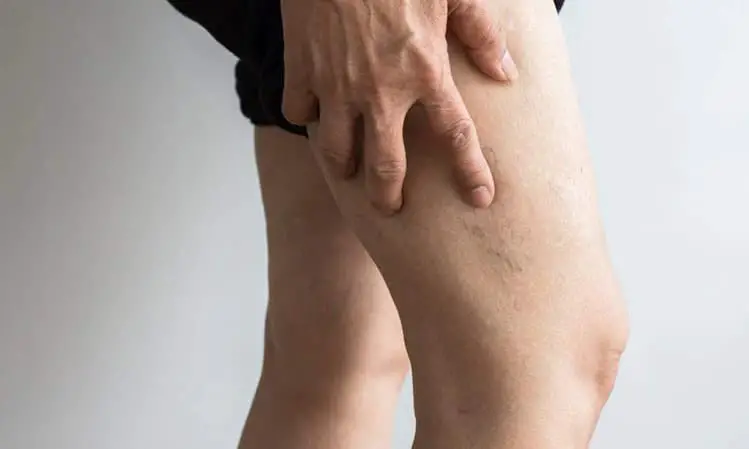Childhood shapes our adult lives more profoundly than many of us realize. For women who experienced a lack of love during their early years, this shortfall can significantly influence their self-perception and interpersonal relationships well into adulthood. Recognizing and understanding the deep-seated effects of these childhood experiences are vital steps for anyone seeking to overcome their past and embrace a healthier, more fulfilled future.
Furthermore, the journey of an unloved daughter into adulthood is fraught with unique challenges and emotional hurdles. These issues often manifest in various aspects of life, from professional achievements to personal relationships.
The Developmental Challenges of Unloved Daughters
The profound influence of emotional support in shaping a child’s development cannot be overstated. For unloved daughters, the absence of nurturing and affirming interactions during their formative years often sets a foundation of insecurity and mistrust that persists into adulthood.
This deficit in emotional support impacts not just their self-esteem but also their capacity to form healthy relationships. Research has highlighted that the emotional environment provided to children in their first five years has long-term effects on their educational achievements, social behaviors, and romantic involvements decades later. These findings underscore the enduring impact of early childhood experiences, particularly the negative outcomes that arise from a lack of affectionate and supportive caregiving.
This lack of foundational support teaches unloved daughters to view the world as an unpredictable and often hostile place. The implicit message they receive is that they are unworthy of love and care, which ingrains a deep-seated feeling of unworthiness. As adults, these women may struggle to accept love and support, often feeling undeserving of it. This can lead to a cycle of sabotaging relationships and professional opportunities because they do not feel adequate or valuable. The constant battle with feelings of inadequacy often leads to significant emotional distress and can manifest as anxiety, depression, or other mental health issues.

The Lasting Impact of an Unloving Mother on Emotional Resilience
The absence of a nurturing mother profoundly impacts a child’s emotional and psychological development. For those who grew up with an unloving mother, the scars often extend far beyond childhood, affecting their ability to trust and engage in healthy adult relationships. An unloving mother may fail to provide the affirmation and emotional security that are critical for developing a strong sense of self. Consequently, unloved daughters often grow up with a compromised view of their self-worth and a pervasive sense of rejection.
This fundamental lack of maternal affection and support frequently leads to difficulties in managing emotions and forming secure attachments in adulthood. The relationship with an unloving mother can create a template for future relationships, where the expectation of rejection or emotional unavailability becomes the norm. These individuals might find themselves repeatedly drawn to partners who are emotionally distant or dismissive, mirroring the dynamics they experienced in childhood. This repetitive cycle can be incredibly hard to break without conscious effort and often requires professional help to understand and overcome.
Moreover, the emotional vacuum left by an unloving mother can drive unloved daughters to seek validation and acceptance in unhealthy ways, including tolerating toxic relationships or engaging in self-destructive behaviors. The journey to healing for these women involves recognizing the impact their early maternal relationship has on their current life.
7 Behaviors of Women Who Grew Up With Unloving Mothers
The behavioral impacts of being unloved during childhood often manifest in distinct, observable patterns in adulthood. These behaviors serve as both protective mechanisms and barriers to fulfilling relationships and personal growth. Identifying and understanding these behaviors can be a crucial step in the healing journey for those affected.
- Difficulty Trusting Others: Many unloved daughters find it challenging to trust others, especially in close relationships. This lack of trust stems from the fear of being hurt or abandoned again, much like they were in their childhood. As a result, they may avoid deep connections or be overly wary of others’ intentions, which can isolate them and reinforce feelings of loneliness.
- Excessive Self-Reliance: Growing up without reliable emotional support, unloved daughters often learn to depend excessively on themselves. While self-reliance is generally a positive trait, in these cases, it can lead to an inability to ask for help or delegate tasks, driven by a belief that they cannot rely on anyone else.
- Sabotaging Relationships: Whether consciously or unconsciously, individuals who were unloved as children might sabotage relationships that get too close or seem too good to be true. This behavior is a defense mechanism, protecting them from the potential pain of another abandonment or betrayal.
- Perfectionism and Control: An unloved child might grow into an adult who seeks to control their environment and relationships meticulously. This control often extends to perfectionism, where the individual believes that being perfect is a way to earn the love and approval they were denied in childhood.
- Emotional Detachment: To protect themselves from emotional pain, unloved daughters might detach themselves emotionally from situations and relationships. This detachment can make them appear cold or uninterested, but it is often a way to cope with unresolved fears and anxieties about being unloved.
- Overcompensating in Caregiving: Women who grew up with unloving mothers may become overcompensating caregivers in their adult relationships. This behavior is often driven by an unmet need for affection and acceptance in their childhood. They might go to great lengths to please and care for others, often neglecting their own needs in the process.
- Difficulty in Accepting Positive Feedback: Often, unloved daughters might struggle to accept compliments or positive feedback genuinely. Growing up without affirmative support can make them skeptical of others’ praises and doubt their own worthiness. This can manifest in dismissing or downplaying achievements, or feeling uncomfortable and anxious when recognized positively, fearing that they do not truly deserve the accolade or will not be able to meet expectations in the future.

Rebuilding Self-Worth: Overcoming the Shadows of an Unloved Childhood
The path to recovery for those who were unloved as children is not just about understanding and processing the past; it’s also about actively shaping a more positive future. Here are some practical strategies that can empower individuals to overcome the long-standing effects of an unloved childhood and pave the way for a healthier, more fulfilling life.
- Seek Professional Therapy: Engaging with a professional therapist who specializes in childhood trauma can provide the necessary guidance and support to navigate the complexities of past emotional wounds. Therapy offers a safe space to explore feelings, understand patterns, and develop healthier emotional responses.
- Cultivate Self-Compassion: One of the critical steps in healing is learning to treat oneself with kindness and compassion. Practices like mindfulness and meditation can help individuals develop a more compassionate inner dialogue, which is essential for healing the harsh self-criticism often internalized from childhood.
- Develop Support Networks: Building a support network of friends, family, or support groups who understand and empathize with one’s experiences can be incredibly beneficial. These networks provide emotional sustenance and a sense of belonging, helping to combat the isolation that often accompanies feelings of unworthiness.
- Engage in Self-Discovery: Activities that promote self-discovery, such as journaling, creative arts, or travel, can help individuals understand and express their feelings in a constructive way. These activities offer a means to reclaim one’s identity and discover personal strengths and passions that were overshadowed by past traumas.
- Set Achievable Goals: Setting and achieving goals can significantly boost self-esteem. These should be realistic and tailored to one’s personal aspirations, helping to foster a sense of achievement and control over one’s life direction.
My Personal RX on Boosting Self-Worth at Any Stage in Life
Improving self-worth is intimately linked with both physical and emotional well-being. As a medical professional, I encourage my patients to adopt a holistic approach where physical health initiatives play a key role in building confidence and self-esteem. Engaging in regular physical activities not only improves your body’s health but also enhances your mental outlook, providing a strong foundation for increased self-worth.
- Commit to Regular Exercise: Regular physical activity is one of the most effective ways to boost your mood and self-esteem. Exercise releases endorphins, which can enhance your sense of well-being and make you feel more capable and confident.
- Prioritize Nutritious Eating: Fuel your body with nutritious foods that provide energy and improve overall health. Eating well supports physical fitness goals and contributes to a positive body image, which is crucial for self-worth.
- Incorporate Women’s Energy Protein: Add Women’s Energy Protein to your diet to support muscle recovery and energy levels. Feeling physically strong and active directly contributes to a positive self-image and enhanced self-worth.
- Practice Mindful Movement: Engage in activities like yoga or tai chi, which not only improve physical fitness but also focus on mental and emotional balance. These practices can help align your body and mind, enhancing your self-esteem.
- Maintain Proper Sleep Habits: Ensure you get enough rest. Sleep has a significant impact on physical health, mood, and cognitive function. Well-rested individuals are more likely to have a positive self-image and higher self-esteem.
- Use ‘Calm the Chaos’ Techniques for Recovery: Implement stress-reduction techniques from my free Calm the Chaos series to aid in physical recovery and mental clarity. Managing stress effectively ensures that you can maintain a regular exercise routine and stay motivated.
- Set and Achieve Fitness Goals: Establish realistic fitness goals and work towards achieving them. Each achievement, no matter how small, can boost your confidence and reinforce your belief in your abilities, enhancing your overall self-worth.
- Journal Your Thoughts and Progress: Keeping a journal can be a therapeutic way to express emotions and track your healing journey. It can also help you identify patterns and triggers in your behavior.
By integrating these tips into your routine, you can actively contribute to your emotional healing and help ensure a healthier, more balanced future.
Sources:
- Housman, D. K. (2017). The importance of emotional competence and self-regulation from birth: a case for the evidence-based emotional cognitive social early learning approach. International Journal of Child Care and Education Policy/International Journal of Child Care and Education, 11(1). https://doi.org/10.1186/s40723-017-0038-6
- Daines, C., Hansen, D., Novilla, M. L. B., & Crandall, A. (2021). Effects of positive and negative childhood experiences on adult family health. BMC Public Health, 21(1). https://doi.org/10.1186/s12889-021-10732-w
- Light, R., & Light, R. (2023, November 11). Absent Mother Impact: Understanding childhood emotional trauma and relationship patterns. Beatanxiety | Emotional Health Coach. https://beatanxiety.me/absent-mother-impact-relationships/
- Newport Institute Staff. (2024, April 9). What true unconditional love means for young adults. Newport Institute. https://www.newportinstitute.com/resources/mental-health/true-unconditional-love/




















